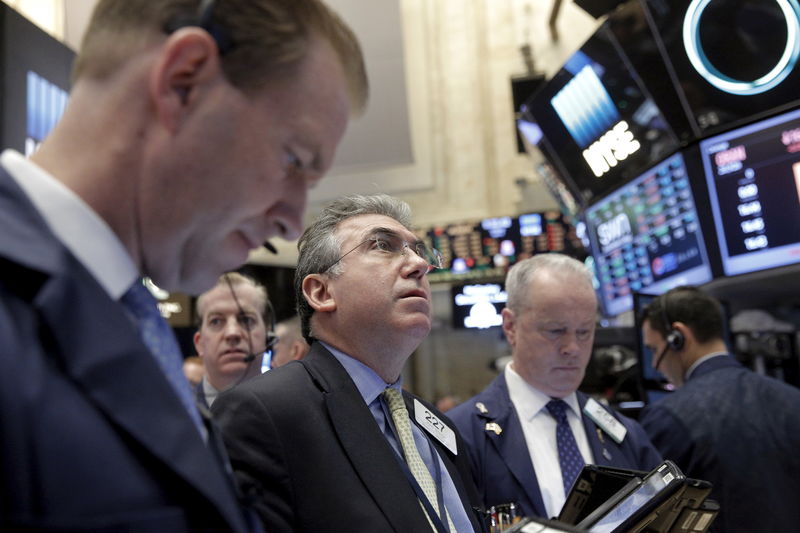By Noel Randewich
(Reuters) - Wall Street fell sharply on Tuesday as investors took gains off the table following a recent rally and ahead of an upcoming quarterly reporting season that is expected to reveal sharply lower earnings.
Following a 13-percent surge over the past seven weeks, the S&P 500 declined 1.01 percent, with all 10 sectors down and a sharp drop in pharmaceutical company Allergan (NYSE:AGN_pa).
It was the S&P's first decline in six sessions, leaving the index flat for 2016.
As S&P 500 companies hand in their first-quarter reports over the next several weeks, average earnings are expected to fall 7.1 percent from the year-ago period, with the energy sector weighing most heavily, according to Thomson Reuters data.
"General consensus is that we're going to see declining earnings," said Peter Jankovskis, co-chief investment officer at OakBrook Investments LLC in Lisle, Illinois. "The big question is how big are those declines going to be?"
Reflecting concerns on Wall Street, International Monetary Fund Managing Director Christine Lagarde on Tuesday warned of increasing risks to global economic growth unless policymakers take stronger measures.
A week earlier Fed Chair Janet Yellen urged caution on rate hikes, citing a shaky global economy and low oil prices.
Oil steadied near one-month lows after Kuwait said an output freeze by top producers would proceed without Iran. [O/R]
Data on Tuesday showed the U.S. trade deficit widened more than expected in February, while another report showed services sector activity rose in March.
The Dow Jones industrial average (DJI) dropped 0.75 percent to end at 17,603.32 and the S&P 500 (SPX) lost 20.96 points to 2,045.17.
The Nasdaq Composite (IXIC) fell 0.98 percent to 4,843.93.
Among the 10 major S&P sectors, the interest rate-sensitive utilities sector (SPLRCU) fell the most, down 1.88 percent.
The S&P financials sector (SPSY) dropped 1.44 percent, led by Wells Fargo (N:WFC), which lost 2.04 percent.
Allergan (N:AGN) shares fell 14.77 percent after the U.S. Treasury unveiled rules to curb tax inversion deals, potentially derailing the drug maker's merger with Pfizer (N:PFE). Pfizer climbed 2.1 percent.
Allergan was the biggest negative influence on the S&P 500.
Baker Hughes (N:BHI) fell 5.09 percent after Reuters reported that the U.S. Justice Department will file a lawsuit as soon as this week to stop oilfield services provider Halliburton Co (N:HAL) from acquiring the oil services company.
Declining issues outnumbered advancing ones on the NYSE by 2,131 to 878. On the Nasdaq, 1,971 issues fell and 818 rose.
The S&P 500 index showed 14 new 52-week highs and two lows, while the Nasdaq recorded 21 new highs and 37 lows.

About 7.2 billion shares changed hands on U.S. exchanges, a little below the 7.3 billion daily average for the past 20 trading days, according to Thomson Reuters data.